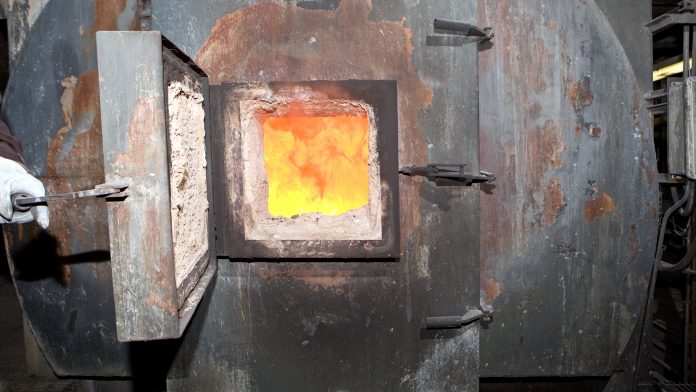Researchers at Chalmers University of Technology, Sweden, have developed a new method of extracting zinc from waste fly ash, reducing landfill and minimising chemical pollution.
Waste incineration results in the production of millions of tonnes of waste fly ash in Europe each year. This ash is then placed in landfill where it pollutes the local environment with toxic substances, such as dioxins. Fly ash can also contain precious metals, like zinc, which can be extracted and used in the metal industry.
A unique method developed by researchers at Chalmers University of Technology can now help researchers extract these precious metals, potentially leading to reductions in environmental pollution, landfill, and transport. Tested at pilot scale, the new method involves treating this waste with an acid wash, also separated from the flue gases, to separate the zinc from the fly ash. The zinc can then be extracted, washed, and processed into raw material.
Karin Karlfeldt Fedje, Associate Professor at Chalmers University of Technology, and researcher at the recycling and waste management company Renova AB, said: “In our pilot study, we found that 70% of the zinc present in fly ash can be recycled. The zinc is not extracted as a pure metal, which would be a much more intensive process, but instead as a zinc-rich product, which can be sold to the metal industry and processed further in currently existing industry production lines.”
Although it is hard to estimate how many tonnes of zinc are currently lost through landfill in Sweden and beyond, the method developed by the Chalmers researchers can be of great interest to all waste management actors. It offers great potential for recovering these metals in a relatively simple way and could have a significant impact on the profitability of waste incineration, as well as its role in the circular economy.
Sven Andersson, Adjunct Professor at Chalmers and R&D Manager at flue gas cleaning supplier Babcock & Wilcox Vølund AB, said: “The technology for extracting zinc from fly ash could have several positive effects, such as reducing the need for mining virgin zinc raw material, lower levels of toxicity in the ash, and greatly reduced landfill contributions. It can be a vital contribution to society’s efforts towards a more circular economy.”









